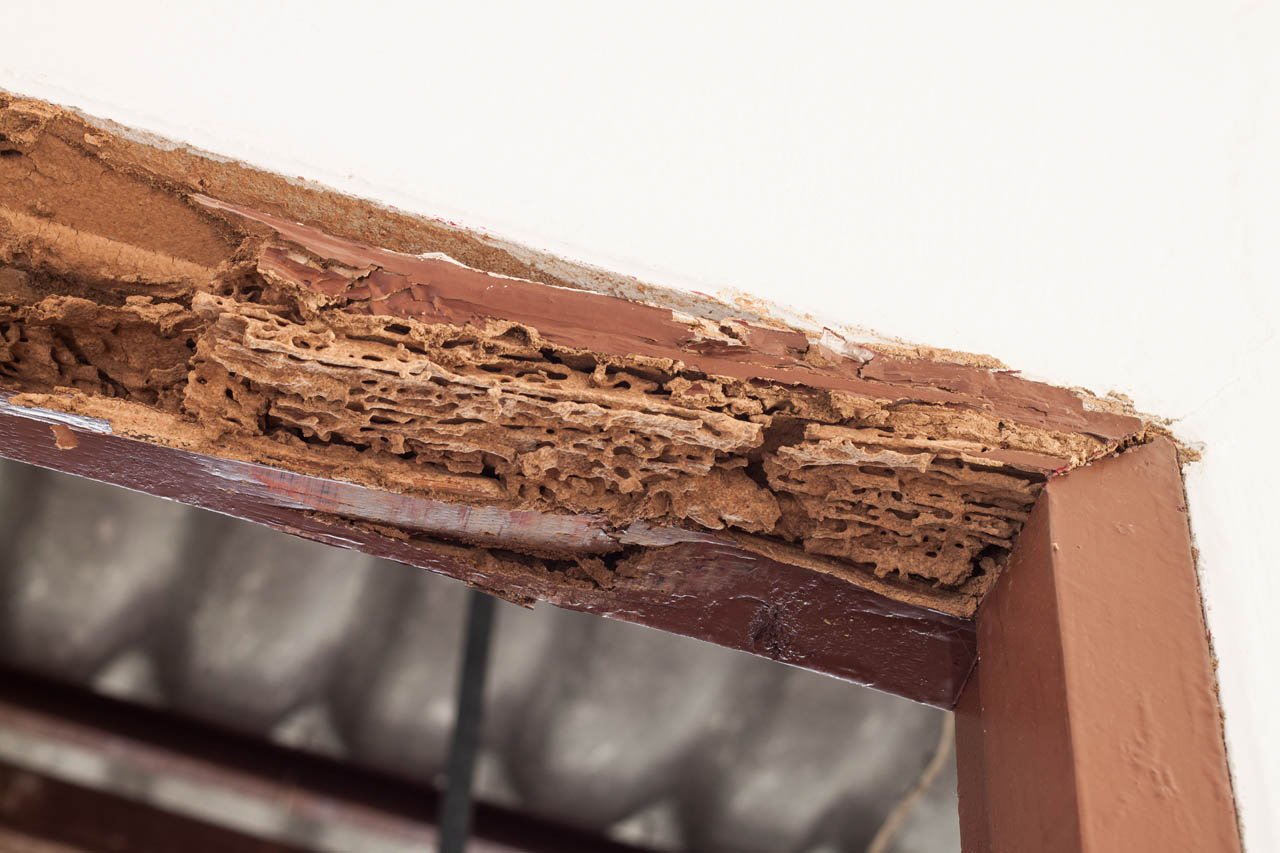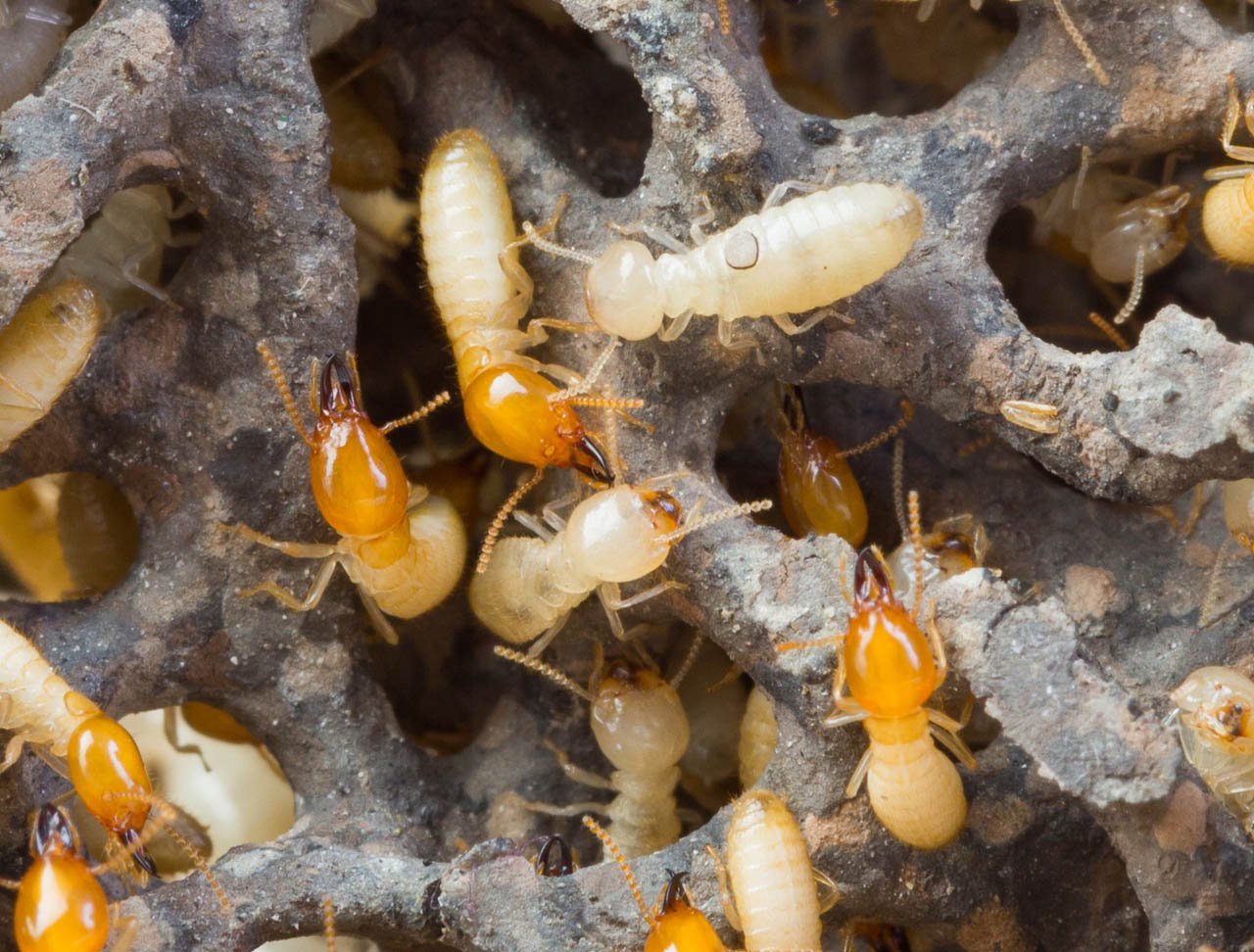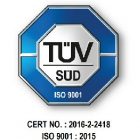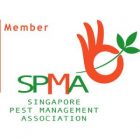Truths about termites
Termite Facts
- Termites are social insects that live in colonies with caste systems. Each termite has their own role and responsibility;
- Termites live in dark places and are blind. They communicate through pheromones (chemical signals) and vibrations caused by head-banging.
- When soldier termites detect a threat, they clash their mandibles together to warn the colony. Therefore, pest controllers tap on an infested area or in quiet places you may hear them.
- Termites build a mud trail to keep their bodies moist above ground. They will not be able to survive in the open.
- Singapore has one of the most destructive subterranean termite species, Coptotermes gestroi. They have caused an estimated $40 billion worth of damage worldwide.
Signs of infestation
Visible Mud tunnels on wall
Discarded termite wings
Wood damage
Rattling sounds coming from the furniture / wall
Hollow pieces of wood

Preventions Advice
- Repair leaking faucets, water pipes and exterior AC units, as this may create a moist environment for termites.
- Remove dead trees, firewood and any other dead wood that can house termites.
- During swarming season, keep your home close to prevent them from entering.
- For storage racks use metal instead of wood if they are left unchecked for a long time.
- Monitor all exterior areas of wood, including windows, doorframes and skirting boards for any noticeable changes.
Methods of Treatment
As termites are usually hidden deep under the ground or in humid places, this makes the search for the main colony nearly impossible. Hence, we make use of their caste system and feeding habits to identify their nests.
1. Inspection
An inspection is key to detecting termites before they damage your property and furnishings. With years of experience, our termite specialists are trained to pinpoint high-risk areas, deploy monitoring stations and use thermal scanners to detect any termite activity.
2. Termite Baiting
Baiting can only be used if there are signs of termite activity. It is a slow but very effective treatment process for termites. It works as a food source for termites laced with poison; this is then consumed by the worker termites and fed to the rest of the colony. As they ingest the bait, they die off over 1-2 months, thus leaving the rest of the colony starving, eventually leading to colony elimination..
3. Pre and post termite treatments
Our termiticides are handpicked over multiple trails to select only the premium range of NEA-approved chemicals, which are non-carcinogenic, environmentally friendly, and safe. Termiticide is injected into the soil around the premise, creating a barrier between the soil and the building that lasts for 5 years. The chemical will adhere to any termite that passes through the treated zone, spreading it through the colony and resulting in colony eradication. A five-year warranty is given along with this treatment.
4. What Should You Do?
It is important to seek professional advice once termite infestations are detected. They can’t be dealt with using off-the-shelf methods such as sprays and powders. As they only deal with termites on the surface and not the main colony, which is key to effectively eliminating them for good. Effective termite pest control measures such as termite baiting, soil and corrective treatment require professional expertise to apply and are unavailable to regular consumers. Our NEA-certified consultants are trained in the latest techniques for identification, management, and prevention of termites.
Having troubles with pests?
How we can help
- Identify the extend of termite infestations
- Selection of the best type of treatment for your specific situation from a full range of dusting, baiting to soil treatment and corrective treatment
- Professional application of the treatment to ensure the best chance of success
- Follow up visits and checks to make sure infestation is cleared
- Advise on long-term prevention measures







